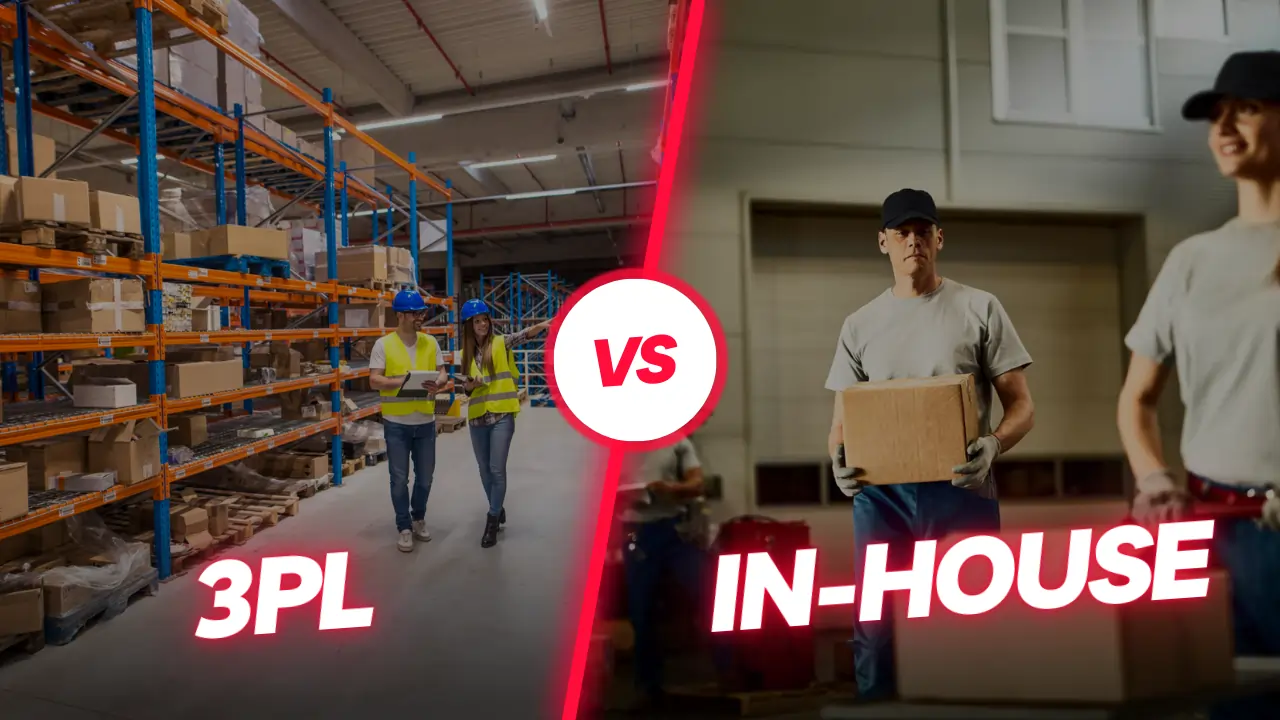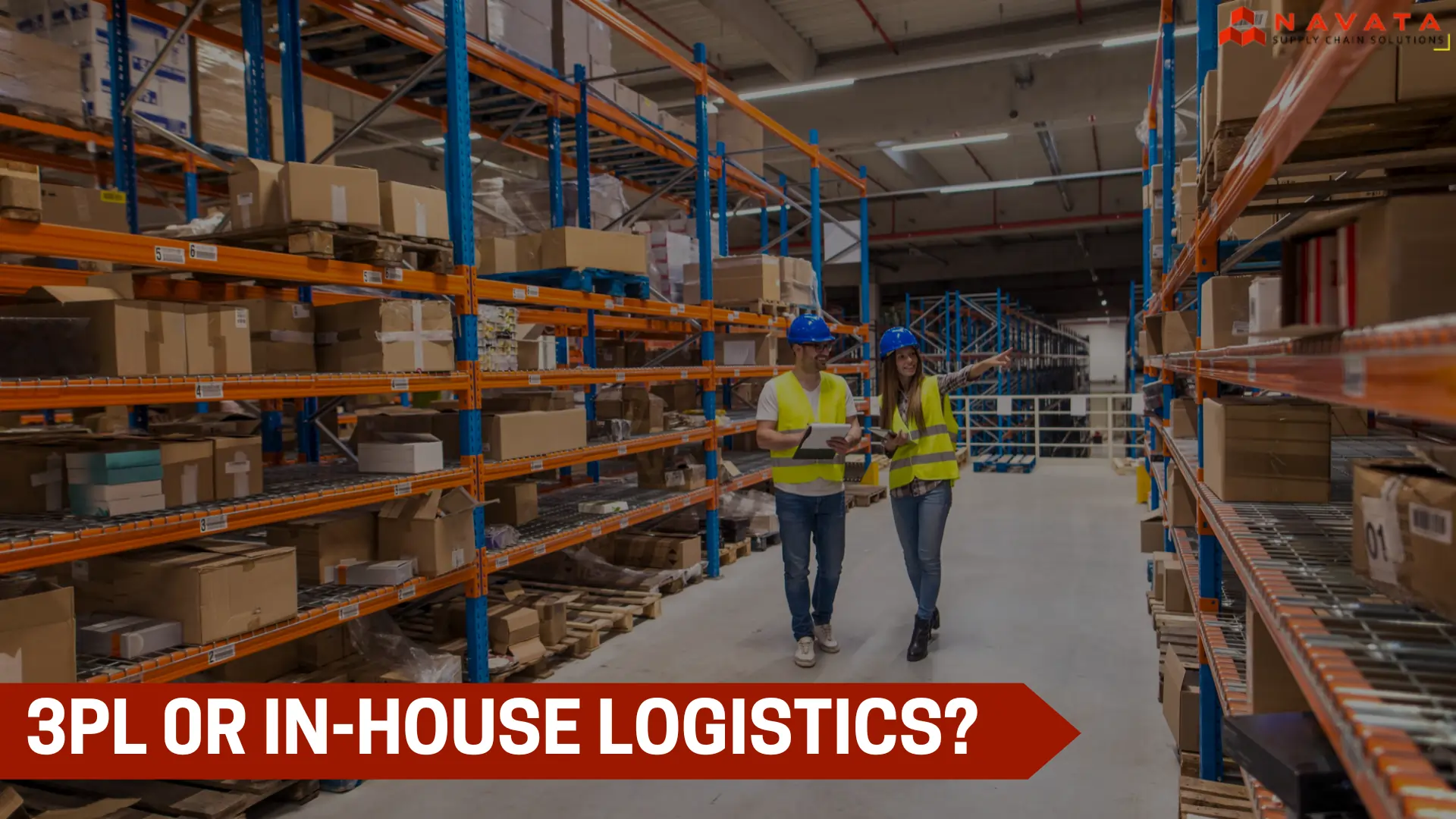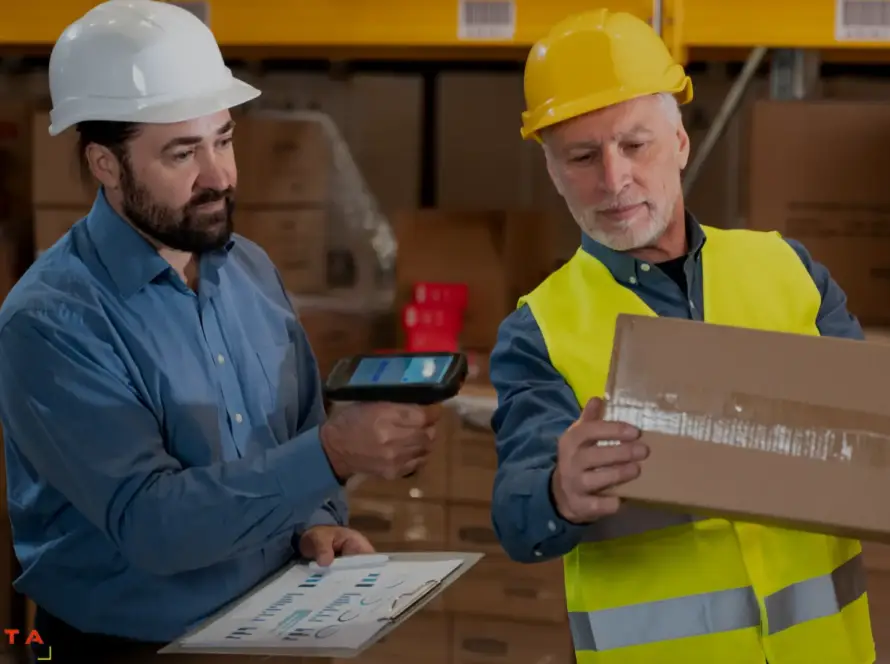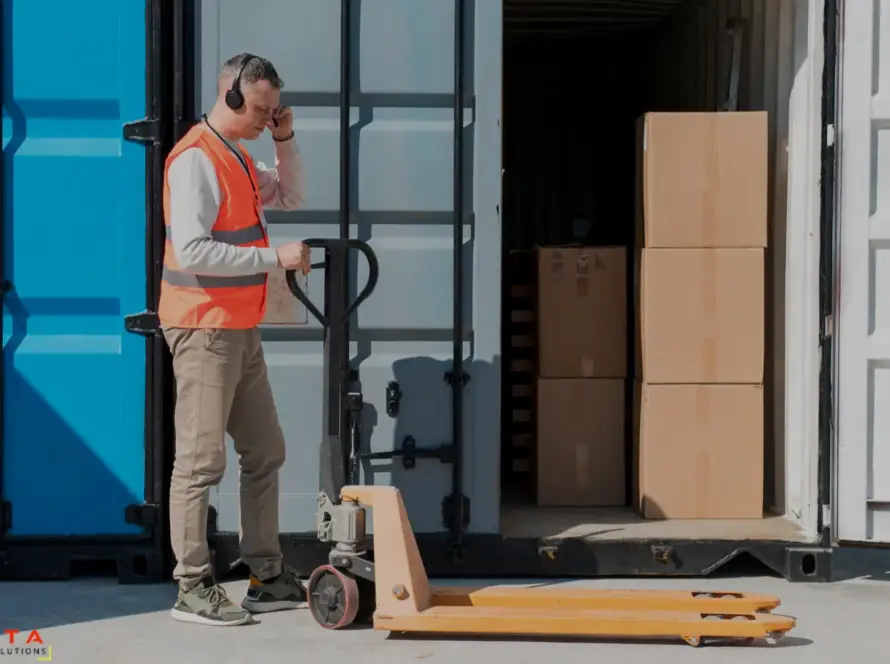3PL vs In-House Logistics
When a business makes a sale, the exciting part isn’t over! Getting the product into the customer’s hands quickly and in perfect condition is just as important as making the product itself. This is where logistics comes in – the behind-the-scenes magic of storing, packing, and shipping.
In the complex world of logistics, businesses face a pivotal decision: manage their shipping and warehousing needs in-house or outsource these operations to a third-party logistics provider. The right choice depends on several factors, and it has a significant impact on your company’s efficiency, costs, and customer satisfaction. Let’s delve deeper into the world of 3PL vs. in-house logistics.
Choosing the Right Approach
Companies face a big choice: Should they handle all these shipping tasks themselves (in-house logistics) or should they get help from a specialized company called a 3PL? Both options have pros and cons, and the right decision can make a huge difference in how smoothly your business runs and even how much money you make. It’s a constant question in the business world: 3PL vs In-house logistics.

Key Comparison Points
Here’s a breakdown of some important areas to consider when choosing between 3PL and In-house logistics:
Cost:
In-house: Establishing an In-house logistics operation requires significant upfront investment in infrastructure such as warehouses, distribution centers, transportation vehicles, and hiring and training staff. These costs can be quite high initially, but over time, there is potential for long-term savings as you optimize your operations and achieve economies of scale.
3PL: Third-party logistics providers typically require lower upfront costs as you only pay for the services you use. This pay-as-you-go model can be advantageous for smaller or growing businesses that may not have the capital to invest in establishing their own logistics infrastructure.
Scalability:
In-house: Scaling an in-house logistics operation can be challenging, especially if your business experiences sudden growth in orders or demand. Expanding warehouse space, increasing fleet size, and hiring and training additional staff can take time and resources.
3PL: 3PL providers are designed to handle fluctuations in demand. They often have a network of warehouses, transportation options, and trained personnel that can be quickly scaled up or down based on your needs. This flexibility can be particularly beneficial for businesses with unpredictable or rapidly changing order volumes.
Control:
In-house: Operating logistics in-house gives you full control over every aspect of the shipping process, from inventory management to order fulfillment and delivery. This level of control allows you to tailor processes to your specific needs and maintain direct oversight.
3PL: When outsourcing to a 3PL, you relinquish some degree of control over the logistics process. However, reputable 3PL providers will collaborate closely with you to understand your requirements and preferences, working as an extension of your team to ensure alignment with your goals and standards.
Expertise:
In-house: Building an in-house logistics team requires hiring individuals with specialized knowledge and skills in areas such as supply chain management, transportation logistics, and inventory optimization. Developing this expertise internally can take time and resources.
3PL: By partnering with a 3PL, you gain access to a team of experienced professionals who specialize in logistics and supply chain management. These experts bring a wealth of industry knowledge, best practices, and the latest technology solutions to streamline your operations and enhance efficiency.
Focus:
In-house: Managing logistics internally can divert attention and resources away from your core business activities such as product development, marketing, and customer service. This may result in a dilution of focus and potentially impact overall business performance.
3PL: Outsourcing logistics to a 3PL allows you to offload the complexities of managing transportation, warehousing, and distribution, freeing up your time and resources to concentrate on core business functions. This can lead to improved focus, agility, and competitiveness in your market.
Make Supply Chain Your Competitive Advantage
What is In-House Logistics?
In-house logistics means your company owns and operates its own warehouses, transportation fleets, and the entire infrastructure necessary to store and ship products. You have complete control over all supply chain processes.
Pros of In-House Logistics
Control: You maintain direct oversight and decision-making power over every aspect of your logistics operations.
Customization: You can tailor processes and packaging to align perfectly with your unique brand and customer experience.
Potential for Long-term Cost Savings (in certain scenarios): If you have consistent, high-volume shipping and efficient processes in place, in-house logistics might be more cost-effective in the very long term.
Cons of In-House Logistics
High Upfront Costs: Setting up warehouses, acquiring fleets, and hiring staff require considerable capital investment.
Scalability Challenges: Rapid growth or sudden changes in demand can strain in-house resources.
Expertise: Logistics is complex. Building a team with the necessary expertise in transportation, warehousing, and technology takes time and resources.
Core Competency Diversion: Managing logistics can distract you from your company’s core business strengths.
What is 3PL (Third-Party Logistics)?
3PLs are specialized companies that handle all or part of your logistics operations, including warehousing, inventory management, order fulfillment, and shipping. You essentially delegate these tasks to an external expert.
Pros of 3PL
Cost Savings: 3PLs leverage their scale and relationships to negotiate better shipping rates and optimize warehouse space.
Scalability: 3PLs have the resources and flexibility to handle sudden spikes or dips in demand.
Access to Expertise: 3PL partners are specialists in logistics with cutting-edge technology and industry knowledge.
Focus on Core Business: Outsourcing logistics frees you to focus on your company’s primary strengths.
Cons of 3PL
Reduced Control: You relinquish some control over how your products are handled and shipped.
Integration: Integrating your systems with a 3PL’s technology may require initial setup and ongoing collaboration.
Finding the Right Partner: Thorough vetting is essential to ensure the 3PL aligns with your values and needs.
You Might Like To Read In Detail: The Advantages and Disadvantages of 3pl

When to Choose In-House Logistics?
In-house logistics means managing all aspects of your company’s logistics operations internally, without hiring an external company. Here are some situations where choosing in-house logistics might be the way to go:
Complete Control: If you want total control over every aspect of your logistics process, from hiring and training staff to managing transportation and warehousing, in-house logistics could be the right choice. You can tailor everything to your specific needs and preferences.
Consistent Demand: When your business has a stable and predictable level of demand for your products or services, in-house logistics can be more cost-effective. You can optimize your resources and workflows based on your consistent needs without worrying about fluctuating demands.
Sensitive or Specialized Products: If you deal with sensitive, high-value, or specialized products that require extra care during transportation and handling, in-house logistics might be preferred. You can ensure that your staff is trained to handle these products properly, maintaining quality and minimizing the risk of damage.
Long-Term Strategy: Investing in your own logistics infrastructure can be a strategic long-term decision. If you anticipate steady growth and want to build internal capabilities to support that growth, in-house logistics allows you to develop and expand your operations over time.
Data Security and Confidentiality: In industries where data security and confidentiality are paramount, such as healthcare or defense, managing logistics in-house can provide greater control over sensitive information and minimize the risk of breaches.
When to Choose 3PL ?
3PL involves outsourcing some or all of your logistics operations to a third-party provider. Here are some scenarios where opting for 3PL might make sense:
Focus on Core Competencies: If logistics isn’t your core competency and you’d rather focus your resources and energy on other aspects of your business, partnering with a 3PL provider allows you to delegate logistics tasks to experts while you concentrate on what you do best.
Seasonal or Fluctuating Demand: For businesses with seasonal or fluctuating demand, 3PL can offer scalability and flexibility. You can adjust your logistics resources up or down as needed without the fixed costs associated with maintaining an in-house logistics team and infrastructure year-round.
Cost Savings: Depending on your specific circumstances, outsourcing logistics to a 3PL provider can result in cost savings. This is especially true for smaller companies that may not have the economies of scale to justify investing in their own logistics operations.
Global Reach and Expertise: If your business operates globally or requires specialized logistics services, partnering with a 3PL provider with a broad network and expertise in specific regions or industries can give you access to resources and capabilities that would be difficult or expensive to replicate in-house.
Risk Mitigation: Outsourcing logistics to a 3PL provider can help mitigate certain risks associated with transportation, warehousing, and supply chain management. Many 3PL providers offer insurance coverage and have processes in place to handle disruptions and emergencies effectively.
Thanks For Reading: 3PL vs In-House Logistics: Finding the Right Fit for Your Supply Chain
Powered By 360Presence

